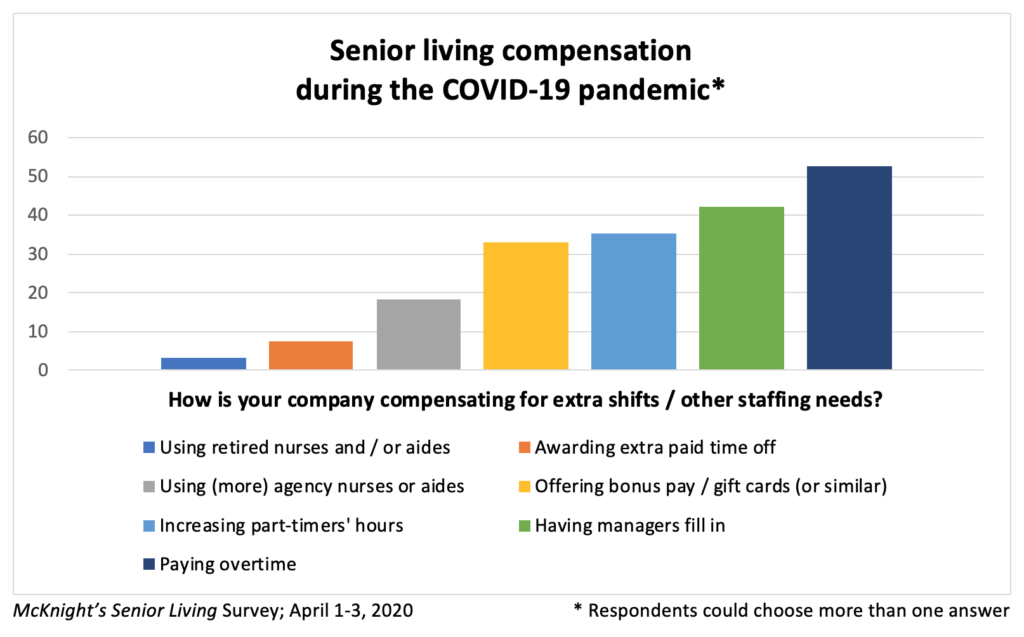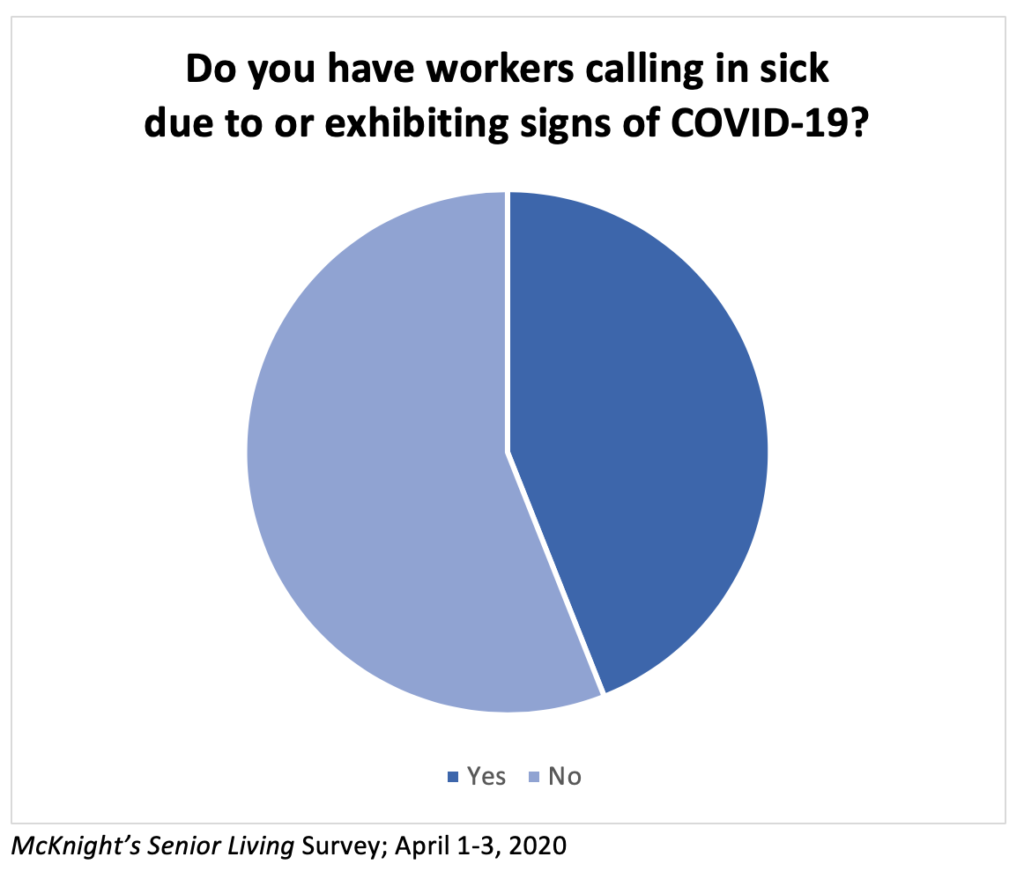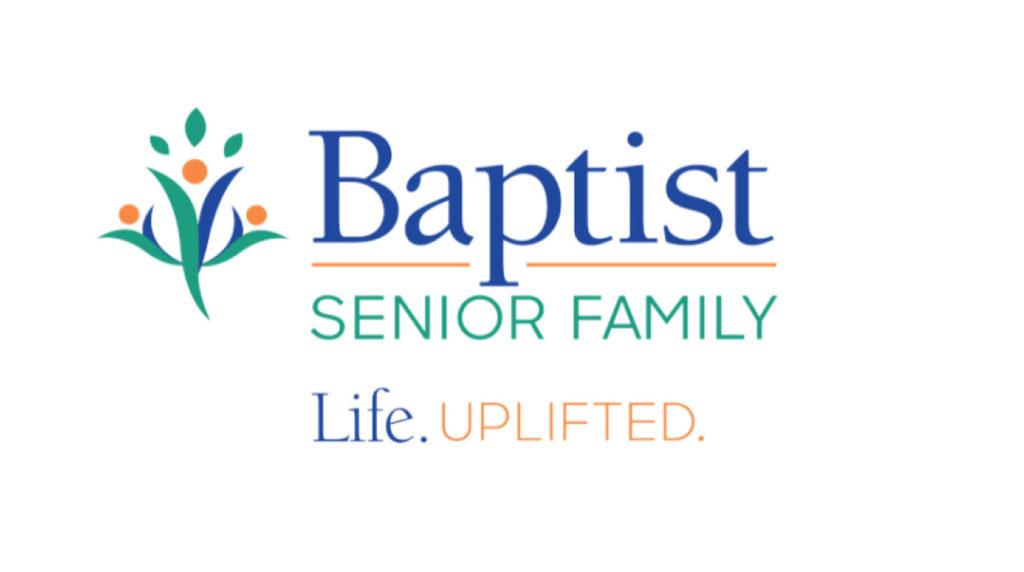
Overtime pay is the most common form of compensation that senior living operators are giving to cover extra shifts and address other staffing needs as communities work to prevent or manage cases of COVID-19 among residents and employees, according to respondents to a McKnight’s Senior Living editorial survey.
Paying overtime was cited by 53% of participants, whereas the second most commonly cited approach, having managers fill in, was cited by 42%. Respondents were permitted to choose as many options as were applicable to their communities.
“We have not cut any jobs but rather have redistributed tasks so people may stay employed,” one participant said.
“Our supervisors are having to work two and three jobs and doing 12- and 16-hour shifts,” said another. “We have been [doing so] long before this. No one cares; they say it is our job.”
McKnight’s Senior Living conducted the survey April 1 to 3 via email; 336 usable responses from administrators, owners, operators, health and wellness leaders, frontline caregivers and others working in independent living, assisted living, memory care and continuing care retirement communities were received.
Other ways that senior living communities are compensating employees for extra work or addressing staffing needs, according to survey-takers, include increasing the hours of part-time staff members (35%), offering bonus pay or gift cards (33%), using more agency nurses and / or aides (18%), awarding extra paid time off (8%), and using retired nurses and / or aides (3%). Seventeen percent of respondents said the question was not applicable to their communities.
Additionally, 11% of respondents said their communities are taking other approaches to address staffing considerations. Food appears to be a frequent perk, with participants mentioning staff members being permitted to order food; being provided meals on all shifts; and being offered pizza, ice cream, snacks and beverages in the staff lounge.
Other tactics include offering stipends for child care; implementing flexible scheduling or the ability for workers to access their pay as soon as they’ve earned it rather than wait for the next payday; allowing staff members to pay for toilet paper and other supplies from vendors using payroll deductions; providing travel-sized hand sanitizer and hand cream for workers to keep in their cars; and scheduling daily fun activities and giveaways for staff members.
| McKnight’s Senior Living survey: 75% report PPE shortages in senior living communities |

Seventy-seven percent of survey-takers said that no cases or presumed cases of COVID-19 had been detected among residents or workers in their communities, but 44% of respondents said workers are calling in sick or exhibiting symptoms of COVID-19 at their communities.
“We need to have an efficient way to know when employees are working in multiple communities in order to help minimize cross exposure between communities, since we know that it’s the employees who take COVID from building to building,” one survey-taker said.
See other results of the survey here.



